Infrastructure in Iraqi Kurdistan: Overview
You cannot build an instant country, but since the 2003 fall of the Hussein regime, the autonomous Kurdistan region has been accomplishing something close to this with its rapid pace of business and infrastructure construction supported by a strong boom in the oil based economy.
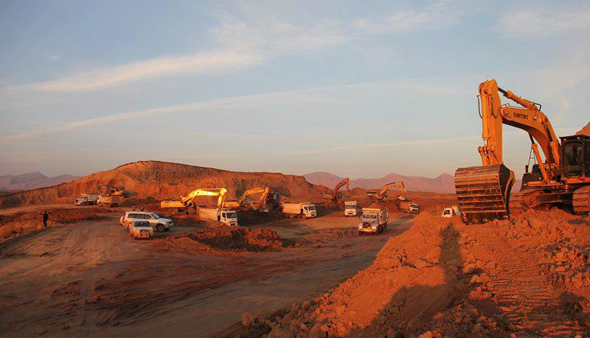
By TK Maloy
ERBIL: You cannot build an instant country, but since the 2003 fall of the Hussein regime, the autonomous Kurdistan region has been accomplishing something close to this with its rapid pace of business and infrastructure construction supported by a strong boom in the oil based economy.
Driving the region’s economy — while the Kurdistan Regional Government seeks further economic diversification — are gas and oil reserves, estimated respectively at 100-200 trillion cubic feet and 45 billion barrels, with possibly another 25 billion potential barrels in unproven reserve.
The Gallup survey organization reported last year even while the economy experienced a steady 8 percent growth in 2011, residents of the three northern provinces governed by the Kurdistan Regional Government are becoming less satisfied with their infrastructure.
This has sparked a quickly emerging market in infrastructure construction — including telecom, power networks, residential, commercial and educational building, roads and two airports (and soon a third) along with advance urban planning for what the KRG would like to see for the shape of the region’s future.
The pace of infrastructure construction has been strong, particularly spurred by the region’s progressive 2006 investment law, which has opened the door for much foreign business and FDI.
But building with such speed, and in so many different sectors poses the difficulty of coordination, priority funding, monitoring effective spending and corruption and most importantly meeting a diverse public demand for different services – all at once.
The Gallup survey organization reported last year even while the economy experienced a steady 8 percent growth in 2011, residents of the three northern provinces governed by the Kurdistan Regional Government are becoming less satisfied with their infrastructure. 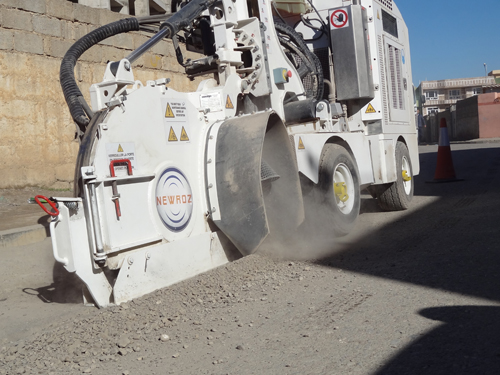
Gallup reported that satisfaction with public transportation in Iraqi Kurdistan declined sharply to 23 percent in early 2012, from 54 percent the previous year. Satisfaction with housing also fell from 53 percent to 30 percent during the same period.
The Gallup organization also reported that worsening attitudes toward key infrastructure in Kurdistan found during the March polling period came after “rare protests in Sulaymaniyah last year that focused largely on services and corruption in the region.”
“As the most peaceful and prosperous area of Iraq, major cities in the Kurdish region such as Erbil and Sulaymaniyah have received thousands of migrants from other parts of the country, exacerbating a growing housing crisis despite government efforts to address the issue,” the survey reported.
Despite rising wage levels, and strong levels of disposable income, the citizens in Kurdistan complain about “about basic services like water, bad roads, sewage shortages and others,” The Kurdish Globe recently reported.
Several of those interviewed said they purchased their water from trucks, with one taxi driver noting he only recently began using a newly constructed pipeline put in place by the local government.
On the large-scale infrastructural front, one key negative is the lack of a comprehensive highway system, which is a key necessity for commerce, transportation and to create a coherent business zone for the region.
On the large-scale infrastructural front, one key negative is the lack of a comprehensive highway system, which is a key necessity for commerce, transportation and to create a coherent business zone for the region.
On the plus side there are several recently completed highways in the Kurdish north. And a highway between Dukan and Sulaiymaniya is expected to begin construction soon. Also, sewerage in Erbil and Sulaiymaniya are being expanded and water treatment plants are being built, according to the KRG.
Road Infrastructure
Rebaz Zedbagi, Partner, Senk group, gave Marcopolis a comprehensive viewpoint to Kurdistan’s roadway infrastructure, giving a breakdown on the current status quo.
“We have about 357 km of paved roads of good quality, which are considered to be highways. Then we have about 2,499 km of one-lane roads. There are also 4,086 km of secondary roads. The total of rural roads is around 3,000 km,” the Senk Partner explained. 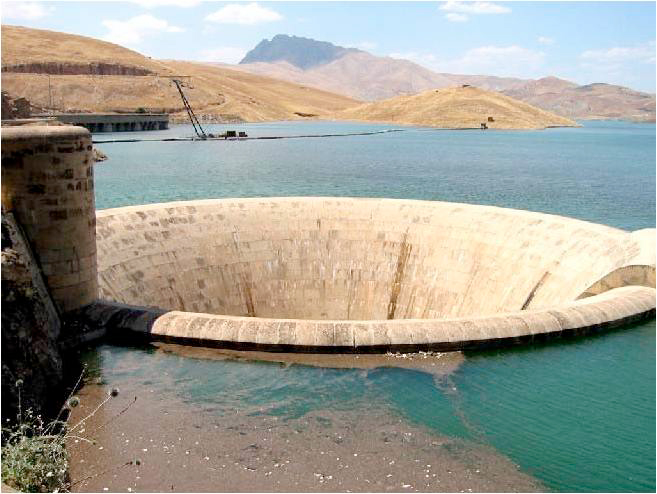
“Since 2003 we have been able to build a lot of new roads but I t is still not enough. Kurdistan needs more roads that will interconnect cities, towns and villages,” Rebaz Zedbagi added. “A road is a very crucial need of life; life is spreading thanks to a road. When a road is going to a place, then everything is going there. If there is no road, people are not going to get there. Roads are very important for the development of agriculture. They are also essential for villages to renew themselves.”
The SENK Group was founded in 2000 in the city of Erbil with initial activities rooted chiefly in infrastructure constructions such as roads and bridges.
The Kurdish Autonomous Region has two international airports: Airport Sulaimany and Hawler International Airport in Erbil. Both busy flight centers, given the amount of foreign company business travel to and from the region.
Also, KRG Prime Minister Nechervan Barzani performed the ground breaking for a new international airport in Duhok in late September. Duhok International Airport will be the third airport in the Kurdistan Region. After its completion in 2015, travelers will have direct international access to each of the region’s three provinces. The key airport in Erbil has recently added new facilities and continues to grow markedly.
In a recent interview with Marcopolis, North Bank Chairman Nozad Dawood Fattah Al-Jaff, commentated on the increased commercial travel into Kurdistan.
“When I attend conferences and meetings and then return to Iraq after traveling, I have a hard time finding a seat on a plane going back to any part of Iraq, especially to Erbil or the whole KRG area. You have to make sure you book your tickets in advance to get a seat – and I view this as a very good sign,” said the North Bank chair.
This said the KRG’s policy of infrastructural and sector investment has been somewhat laissez faire as to where the government has been trying to direct FDI and other investments.
“Five years ago there was no airport in Kurdistan and now we have flights coming in from all over the world, including direct flights. If you look at the skies, you will see a lot of traffic over the city of Erbil and this is the same for any other places in which they have airports in Iraq. All the planes coming to Iraq and KRG are full or have a high occupancy. The hotels are also difficult to book – these are all very good signs. “
the Internet Infrastructure
According to the Kurdistan Region’s Ministry of Transportation and Communications, there are currently 21 companies providing Internet services in Kurdistan. The two dominant companies behind the regions digital network are Newroz Telecom, which has a robust fiber optic network running between Erbil and Duhok and KurdTel in the Sulaymaniyah and the Garmian regions.
There are three mobile operators with GSM licenses in Iraq and Kurdistan: Zain Iraq, a unit of Kuwait’s Zain, Qatar Telecom (Qtel) subsidiary Asiacell, and France Telecom affiliate Korek Telecom. Mobile penetration rate is estimated at around 80 percent.
Newroz Telecom head Kawa A. Jawad told Marcopolis the following: “If you look at Iraq and globally, you will see they have an eight percent penetration rate, but (in actuality) Kurdistan has seven percent and Iraq has one percent. The penetration rate of the Internet in Iraq is very low because they don’t allow any private sector companies to operate or build any infrastructure in Iraq.” 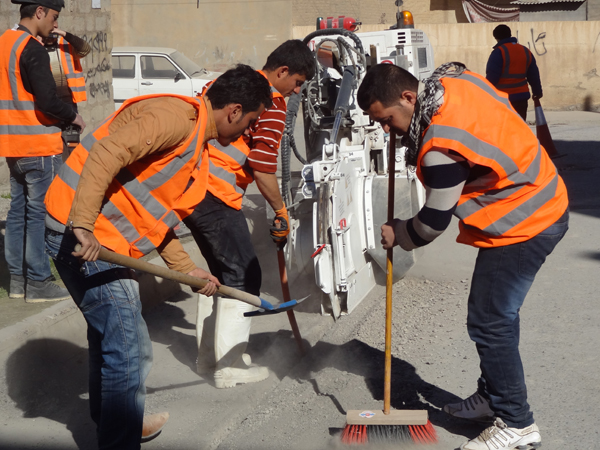
Jawed added, “When we started in 2005 there was a zero penetration rate. Now 85 percent of the Internet of Kurdistan comes through Newroz, so for a country like Kurdistan, 50 percent (usage) by the end of 2015 is possible. I cannot predict anything for Iraq because it has been there like this for ages.”
Tourism Infrastructure
In terms of business, hotels should be included on the infrastructure list – there are at least 21 major business hotels in the Kurdistan region’s three main cities: Erbil, Duhok and Sulaimaniyah, owned by a variety of groups and investors. The center of much business and social action is Erbil’s Rotana Hotel, part of an Emirati-owned group.
Also, there are a number of hotels are under construction including the nearly complete five-star Divan Hotel in Erbil, an $80 million investment by a Turkish hotel group. And, the Marriott group and Kempinski group have nearly completed two large towers.
This said the KRG’s policy of infrastructural and sector investment has been somewhat laissez faire as to where the government has been trying to direct FDI and other investments.
“We have had sectors open to investors on a balanced way without giving priorities to them. Now we are in a different position; we have identified our priorities and the sectors that we want to promote and the projects that will get more incentives, rather than giving the same incentives to every sector.” said Herish Muharam, Chairman of the Kurdish Board of Investment, in a recent interview with Marcopolis.
He added that top priority sectors include tourism, industrial and agricultural sectors. 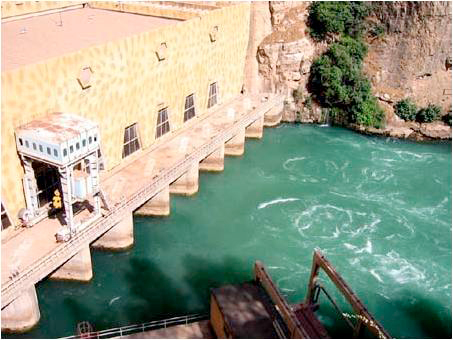
Muharam also note that Kurdistan is very close to signing contracts or strategic agreements with master developers “with very high profiles and professional backgrounds. We expect that as a result of these projects the industrial and tourism sectors will jump into a phase in which they will start contributing to a great extent to the economy of Kurdistan.”
Dean Micheal, Chairman of ATCONZ Group, gave high praise to doing business in Kurdistan, noting: “There is a modern airport, good infrastructure, the electricity is much more stable compared to any other part of the country, and nature is beautiful. There is the ease of doing business and the fact that the government allows you to do business once you comply with their requirements. The rule of law is there, they give you protections, and the government supplies us with guards to protect the project during the building process.”
The ATCONZ head added, “They are meeting and respecting their obligations towards investors who come in and they will try to help you as much as possible to make your project a success. If your project is successful, it means that they are successful and that’s how they look at it.’”
ATCONZ is a diversified group with business interest in investment; real estate development; the industrial sector; oil and gas trading; construction contracting and consultation.
Dam Construction
According to the Kurdish Ministry of Water Resources there are plans to construct five large dams in the Federal Region of Kurdistan-Iraq. This includes the Daize Dam northeast of Dahuk; Litan dam northwest of the Erbil; Bistana Dam southwest of Erbil; Drash dam in the district Saladin in the province of Erbil; and the Shadala dam over the river Shramaja in the northeast of the province Sulaymaniya. 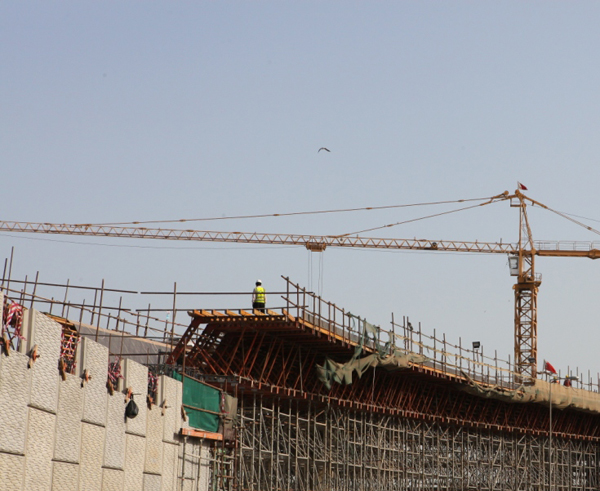
For Senk Group’s Zedbagi, the more dams are a key addition to the Kurdistan’s infrastructure.
“As Kurdistan has large reserves of water, a lot of underground and overground since we have abundance of rain, the water is now just soaking into the soil and we don’t have any benefits from it. We need to store it to get the benefit out of it (for agriculture, tourism, electricity etc.),” Rebaz Zedbagi said. “There are only two big dams in Kurdistan at the moment and they are not sufficient enough. “